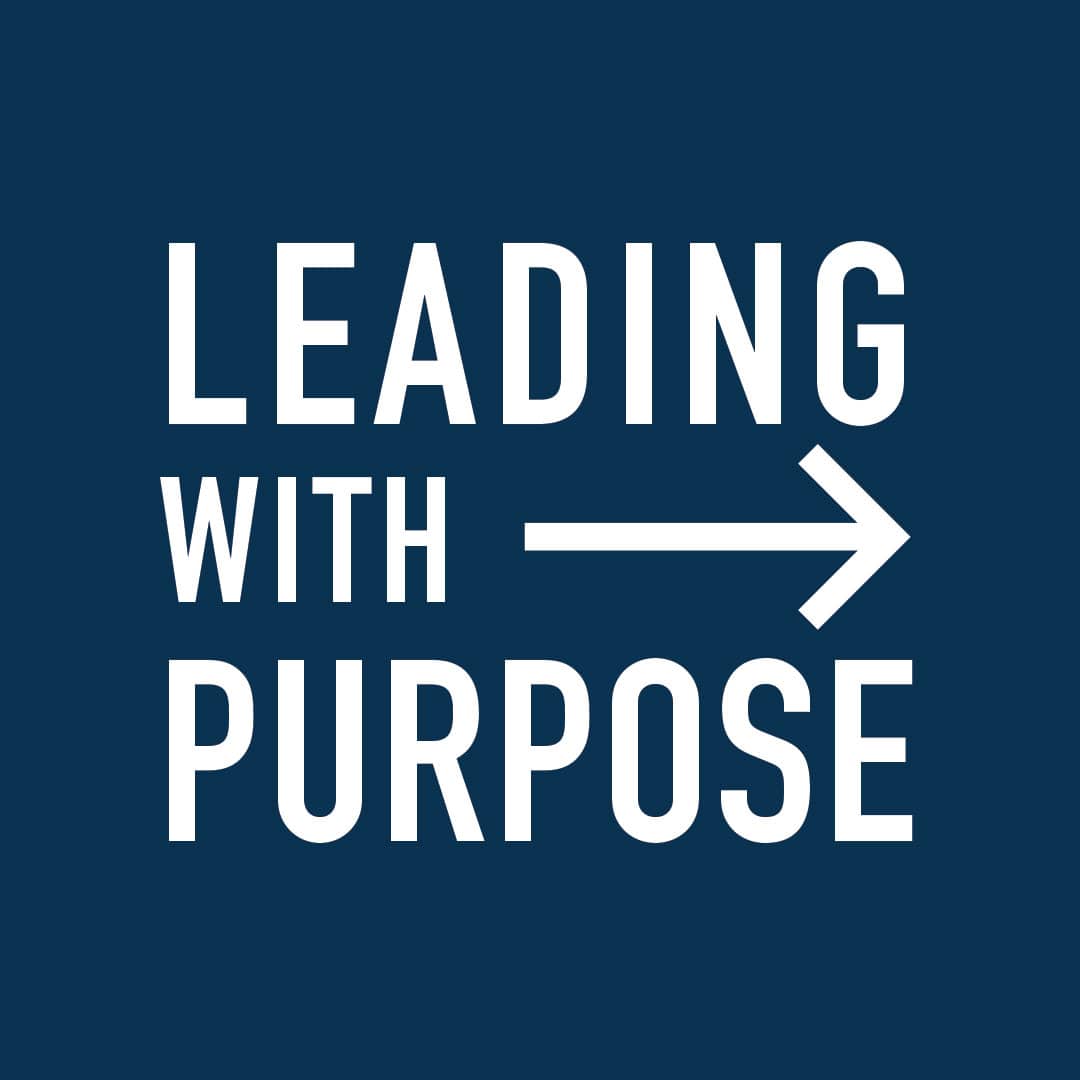A foot in the door: The ethics of internships

A foot in the door: The ethics of internships
Opinion + AnalysisBusiness + LeadershipPolitics + Human Rights
BY Althea Kuzman 2 MAY 2022
It’s just to get my foot in the door, I tell myself for the fifth time today as I offer my brain, my degrees and time to someone for free.
It’s a phrase that I’ve always found to be so incredibly visceral. I picture a door just about to slam shut in my face, that I have to hastily shove my foot in before it swings to a heavy close. Or a door that is slightly ajar, an unknown little me comes knocking and I have to slip my foot in and pry the thing open – to beg for an opportunity.
A foot in the door to do tasks which by now should be compensated. Because somehow in my years of trying to find a suitable job, no-one deems my skills to be transferable.
None of these scenarios really paint a picture for a healthy work foundation.
One would think that multiple arts degrees and years of casual jobs following instructions, would qualify me for an “entry level position”.
But it doesn’t. It leaves me cold emailing organisations, asking if they can send their off cuts to me so that I can get exposure. So that I can build a portfolio. So that I can earn a living and build my career.
But in my thinly veiled bitterness I digress. I chose the arts. I chose the creative field where getting your foot in the door is seen as a ‘privilege’. Having worked actual entry level jobs such as gallery host, our role was held up on a pedestal, yet we were not. We were made to simultaneously feel so lucky to have this job and yet so small and very replaceable. Why? Well, because it looks so good on the CV.
But in reality, it hasn’t really done anything to help my long-term career. And while I’ve had some wonderful bosses who have helped mentor me to learn and grow, this no longer seems like valid proof that I can, in fact, progress my career. It also doesn’t help that the pandemic cut arts positions in half.
The issue that lies here is often the refusal in hiring processes to acknowledge transferable skills. Which leaves you wondering, where do you gain these industry specific skills if no one will hire you for entry level jobs? Internships, of course.
Internship or Indenture?
Internships are fascinating mostly because of their prevalence, lack of regulation and lack of overall purpose. A report for the Fair Work Ombudsman by Adelaide Law School in 2013 states that “In Australia, as elsewhere, the term ‘internship’ is without fixed content. It has a broad and uncertain meaning covering everything from unpaid or paid entry level jobs to volunteer work in the not-for-profit sector”. This covers such a breadth of options that no wonder those starting out in their careers can fall into the trap of being exploited.
Internships are rife, particularly in the arts and on a global scale. Note when referring to the arts I include any creative industry, because they all bleed into each other – skills intersect and majority of skills learned are transferrable. There would be no issue with internships… if they were paid, but they rarely are.
In the UK, Sutton Trust is a non-for-profit organisation that fights for youth social mobility. Their work spans research on the prevalence and the social impact that internships have on recent graduates or those looking to change their career. Their 2018 report found that that 86% of arts internships are unpaid. The issue with unpaid internships is that life isn’t free.
Putting numbers on this, to live in London for a month whilst doing an unpaid internship costs £1,019 (about AUD$1800). And to make matters worse, due to the lack of legal clarity surrounding internships, there are concerns that some employers are exploiting this grey area. A harrowing ethical dilemma – getting an extra pair of hands without even attempting to understand their own responsibilities towards interns.
Due to the lack of legal clarity surrounding internships, there are concerns that some employers are exploiting this grey area.
It’s interesting to note that internships are always perceived as a stepping-stone. The Australian National Association for the Visual Arts (NAVA) has a fact sheet on internships and what to expect, stating that they can be either paid or unpaid but the ‘crux of the situation is that it is an educational exchange’. NAVA go further to highlight the Fair Work Ombudsman’s criteria of an internship as a ‘meaningful learning experience, training or skill development’. This sounds completely reasonable, except when there is a precarious edge that tips easily into exploitation.
Researcher at the University of Montreal, Mirjam Gollmitzer recently detailed the precarious entryways into journalism. Often internships are seen as a socialisation into an industry or workplace, but Gollmitzer states that whilst that is ideal, research shows the opposite.
Through interviews with interns within the journalism industry, she finds interns who are ‘starved of mentorship and training’ and often left to their own devices. She highlights a powerful observation arguing that ‘the tacit assumption is that workers, not employers, are tasked with making the internship a success’.
How do we determine the success or value of an internship? To be seen as a meaningful learning experience, interns require mentorship, an environment to gain confidence and an understanding of how an industry works. Instead, Gollmitzer finds interns are often merely an extra pair of hands doing menial tasks, “with their experiences marred by haphazard interactions with time-strapped colleagues and arbitrary decisions by supervisors.”
The onus should be with employers to ensure interns are offered a valuable and structured experience where they can come out having truly learnt something and be given a genuine leg up in their career.
Instead many interns are left with a bitter taste in their mouth. They’re overworked, under paid (or not at all) and don’t walk away with skills or tangible experience they can take into an entry level job, which seems barely adequate. Which leads to the questions… when did jobs stop being a place of meaningful learning experiences and skill development? And how did we palm this off onto unpaid internships?
How did you get your start?
The above two questions are integral in understanding the shift that has occurred in the workplace. When listening to boomers talk about their start in the industry, often we hear those anecdotes about how they started in the photocopy room and someone noticed their intelligence and they were given a chance. Or how they were internally trained and given qualifications within the organisation.
The fact of the matter is that entering the workforce has been increasingly difficult for young people. The latest statistics from the HILDA Survey by The Melbourne Institute of Applied Economic & Social Research shows that only about 40% of graduates find full-time work in the first year out of full-time education. Their median hourly earnings are about two-thirds of median earnings of all workers, which is abysmal since our cost of living is ever on the rise. But this is certainly part of the discussion surrounding internships. With more and more people unable to find full-time work, we turn to casual work, to subsidise rent and to simply make a living, despite these casual jobs often not actually having relevance to one’s degree or career aspirations.
Casual work is the backbone of all unpaid internships. We all know someone who has worked in a pub whilst doing an unpaid internship in their desired creative field. But this leaves young people with burnout, and a distaste for a particular industry. Imagine that – already having doubts about something you studied just because from the get go you’re told you’re lucky to be working for free.
Nothing in life is free, therefore internships shouldn’t be. Making internships unpaid ‘learning’ experiences often leaves out entire demographics of people who simple cannot afford to work for free. It perpetuates the elite nature of industry, and the idea of the grind straight off the diving block. It’s cruel and unnecessary. Particularly because it wasn’t quite as brutal in different generations. For the first time ever, gen Z are running the risk of earning LESS than their parents, something that has never happened in the course of history.
How do we fix this? While I’m not well versed in economics or capitalism, I do know that people need to be paid for their work. Don’t take on an employee if you don’t have the bandwidth to mentor or financially compensate them. We need to start treating entry level jobs as a first stepping stone into an industry and leave the exploitation of young workers in the past, where it belongs.
Ethics in your inbox.
Get the latest inspiration, intelligence, events & more.
By signing up you agree to our privacy policy
You might be interested in…
Opinion + Analysis
Business + Leadership
It’s time to consider who loses when money comes cheap
Opinion + Analysis
Society + Culture, Business + Leadership
How to tackle the ethical crisis in the arts
Opinion + Analysis
Business + Leadership
Is employee surveillance creepy or clever?
Explainer
Business + Leadership
Ethics Explainer: Ethical Infrastructure
BY Althea Kuzman
Althea Kuzman is an emerging curator and arts writer. She holds a Master of Curating and a BA in Communications and International Studies.
The business who cried ‘woke’: The ethics of corporate moral grandstanding

The business who cried ‘woke’: The ethics of corporate moral grandstanding
Opinion + AnalysisBusiness + LeadershipClimate + Environment
BY Isabella Vacaflores 22 MAR 2022
Consumer responses are crucial to holding businesses accountable for their social and environmental responsibilities.
As of this year, over half of the highest polluting companies in Australia have committed to net-zero emissions targets. Meanwhile, in the Twitter-verse, dating apps and chocolate bars proclaim an end to police brutality, sexism, and the Uighur genocide.
Out of nowhere, big business has seemingly grown a social consciousness – and an impressive marketing budget to match. From fast fashion to mining, you’d be hard-pressed to find a company that doesn’t claim to be doing the right thing by their employees and the environment.
Moral grandstanding: When businesses fail to put their money where their mouth is
Unfortunately, a lot of this moral messaging is nothing more than opportunistic marketing, designed to profit from a societal shift towards conscious consumption. As recent reporting by Greenpeace highlights, of those Australian companies that claim to be going green, only a small fraction are actually taking effective steps by switching to cleaner energy sources.
Likewise, many brands divert attention from dubious business operations by aligning themselves with the popular side of trending moral discourse, tweeting out support for social justice movements while simultaneously being accused of the very issues they rally against. As in the following advertisement, which seemingly suggests that the solution to America’s police brutality problem is drinking Pepsi, even at best case, such messaging can come across as offensively tone-deaf.
This phenomenon is what philosophers Justin Tosi and Brandon Warmke describe as ‘moral grandstanding’ – the insincere use of principled arguments to self-promote or seek status. Similarly, the terms ‘virtue signalling’, ‘performative activism’, ‘green-washing’ and ‘woke capitalism’ describe how moral concerns can be deployed as a front for self-serving behaviour.
Ultimately, all these phrases describe the same thing, which is the failure of businesses to practice what they preach.
This hypocrisy is a problem because it prevents meaningful change from occurring while simultaneously misleading consumers into believing that we are well on the way to a better world when actually, progress flounders.
Doing something is better than doing nothing, except when it isn’t
Consequentialism asserts that actions are good if they cause more benefit than harm. Using this line of reasoning, many argue that insincerity is a small price to pay for having big business commit to less harmful commercial practices, which diminishes moral grandstanding to a largely trivial concern.
Yet, when we contemplate the opportunity cost of accepting such half-baked behaviour from those who have the most power to affect change, this argument quickly becomes self-defeating. Consider what would happen if businesses diverted the money and resources spent on advertising their moral character towards researching and enacting reforms that put substance behind these self-proclaimed progressive values.
As consumers, we cannot accept anything less than this because to do so would cause our planet and people to needlessly suffer – a harm that far outweighs any benefit gained from morally grandstanding promises to “do better”.
Additionally, from a deontological perspective, it can be argued that the intention behind moral actions is what truly determines their worth. Since morally grandstanding companies aren’t motivated by a principled duty, but rather, by a profit outcome, they can hardly be considered good (in a Kantian sense, anyway).
How to spot a moral grandstander
In the past half-decade, energy giant AGL has heavily advertised their pledge to decarbonise while simultaneously remaining Australia’s largest greenhouse emitter. Meanwhile, companies such as Woolworths, Coles and Telstra have quietly gotten on with transitioning to almost 100 per cent renewable energy.
Greenpeace campaign takes aim at AGL. Image by Monster Children Creative
Evidently, some businesses are being genuine with their environmental and social commitments. The problem with moral grandstanders is that they take the spotlight away from such efforts. As consumers, we can have a meaningful impact on our world by choosing to spend our money with the former, but the question remains of how to distinguish between the two:
- Consumers can start by asking themselves about the nature of the company which is making the moral appeal –are harmful business practices embedded in the industry they operate in? Does the business themselves have a poor social or environmental track record? If the answer to either of these questions is ‘yes’, then their claims should be viewed suspiciously.
- Be on the lookout for weasel words – buzz-wordy claims which are deliberately vague. Saying something is “green” or “eco-friendly” isn’t a qualifiable statement. Also, note that the validity of some credentials relating to fair trade and carbon emissions are being increasingly challenged.
- As with any investment, if you’re going to put your money into a business based on their moral claims, fact-checking is always a good idea. This can be done through a quick internet search or a skim through related news results.
Remember that in many countries (including Australia), consumer rights laws exist to ensure companies cannot get away with making false claims about their products. Holding businesses to account for their moral grandstanding is therefore not just an ethical imperative – but a legal one also.
Kendall Jenner advertisement and images courtesy of Pespi
Ethics in your inbox.
Get the latest inspiration, intelligence, events & more.
By signing up you agree to our privacy policy
You might be interested in…
Reports
Business + Leadership
Thought Leadership: Ethics in Procurement
Opinion + Analysis
Science + Technology, Business + Leadership
Ask an ethicist: Should I use AI for work?
Opinion + Analysis
Business + Leadership, Relationships
It’s time to take citizenship seriously again
Opinion + Analysis
Business + Leadership, Society + Culture
There’s something Australia can do to add $45b to the economy. It involves ethics.
BY Isabella Vacaflores
Isabella is currently working as a research assistant at the Global Institute for Women’s Leadership. She has previously held research positions at Grattan Institute, Department of Prime Minister & Cabinet and the School of Politics and International Relations at the Australian National University. She has won multiple awards and scholarships, including recently being named the 2023 Australia New Zealand Boston Consulting Group Women’s Scholar, for her efforts to improve gender, racial and socio-economic equality in politics and education.
How a Shadow Values Review can improve your organisation

How a Shadow Values Review can improve your organisation
Opinion + AnalysisBusiness + Leadership
BY The Ethics Centre 7 MAR 2022
Michelle Bloom, Director of Consulting and Leadership at The Ethics Centre, discusses the results of Shadow Values Reviews she has conducted for Australian organisations, which reveal and unlock the hidden values that really guide an organisation’s culture.
Shadow Values and principles are an expression of the unstated operating culture of an organisation. Operating beneath the surface, they lie beneath the expressed values and associated behaviours of an organisation. Many organisations, for example state “collaboration” as one of their values which is an effective and positive way to ensure you get the best thinking and diverse perspectives. However, what The Ethics Centre’s Consulting and Leadership team have found is, the value of collaboration is operationalised as “co-operation”, leading to less diversity of thinking and curiosity to explore perspectives. Shadow Values can be even an organisation’s culture as they remain unspoken and out of awareness.
We spoke with Michelle Bloom of the Ethics Centre’s Consulting and Leadership team about the results of Shadow Values Assessments she has done for Australian organisations.
How does a Shadow Values Assessment differ from a traditional staff engagement or culture review?
Most large and medium sized organisations do engagement and culture reviews. Having completed many, with different organisations, we’ve found they’re useful up to a point, usually determined by people’s feeling of psychological safety – the point to which they feel safe to express their actual experience.
We’ve all experienced going through the motions with surveys and being less than forthcoming with our opinions when being asked for feedback, whether that’s because of apathy, fear of reprisal or any number of reasons.
What we’ve done is developed a range of methodologies and approaches to get below the surface of how people feel when they talk about work and build a climate of safety for employees to express their opinions freely without fear of retribution.
This is important because once the skeletons are out of the cupboard, the Shadow Values are all known – they’re understood, people feel a sense of relief and optimism that things can change and change for the better. It’s a different paradigm – this approach is more social science and anthropological, more qualitative than other, more standard culture pulses and staff surveys. It’s more about listening to how people express their experiences, which means they’re inherently more comfortable in having a conversation that’s focused on what matters to them and about how the organisation lives their values and where they don’t.
The approach explores people’s lived experience of the values, and the language people use to describe their perceptions gives you a different depth that you don’t find in other culture reviews. Our culture review provides rich insights into the shadow aspects of the culture which is particularly important is times of rapid change and uncertainty. It is not using benchmarks, often validated in a BAU environment, which give a partial view and less relevant in a VUCA context.
What sort of Shadow Values are exposed by these assessments?
We often find similarities in the Shadow Values raised across different organisations, for instance employees recounting their ability to raise issues, manage up, or quoting expressions such as, “keep your head down” and “don’t rock the boat”. These are very common manifestations of maintaining harmony, avoiding conflict, and just getting your job done.
Our insights provide an understanding of how the different Shadow Values constellate to form patterns of behaviour that support the implementation of strategy (or not). This allows you to see a systemic view of the organisational culture: how to shift, amplify and or re-enforce behaviours in service of living your values, implementing your strategy, and achieving your purpose as an organisation.
People join, stay, perform, or leave organisations based on their experience of the culture and what the organisation says it stands for. If there is a disconnect between the espoused values and purpose and the employees experience of them, it can lead to disengagement, resentment, poor performance and a cynicism impacting both the employee and customer experience.
These systemic insights are a bespoke part of the assessment and what we recommend to one organisation wouldn’t necessarily be the same as what we’d recommend to another. It’s about understanding the social system within the organisation, and each organisation will be quite different based on their shadow values.
How have you seen Shadow Values Assessments make an impact upon clients’ organisations?
Our clients have told us that Shadow Values Reviews have helped them to understand the drivers of behaviour and performance and guided them to intervene at a systemic level to shift these patterns and ways of working. The reviews also help them to understand the shadow values that are not formally codified but are having a very positive impact such as “entrepreneurialism” in one organisation.
Engagement surveys, 360 reviews and culture pulses deliver a very different set of quantitative data to the qualitative information about culture that comes from a Shadow Values Review. A recent client undertook both a traditional staff engagement and a Shadow Values survey to get insight into how to deliver on their strategy.
Another recent client had issues of psychological safety and allegations of harassment despite having policies and procedures in place to protect employees. As we have seen, all too much recently, that what is in the policy may not reflect how people actually behave. When organisations fail to address these Shadow Values, it can be a slippery slope, leading to unthinking practice, ethical failure, and moral injury. When we ignore, and unintentionally collude through fear, by not calling out and reporting behaviour we know are unacceptable.
What we were able to do was create safety for people to be able to discuss these very sensitive issues and share their experiences confidentially, and report back on themes and patterns of behaviour. People put a lot of trust in us and we have the credibility as we are independent and not for profit, which is a key differentiator of The Ethics Centre from other consulting firms.
We made a number of recommendations that the organisation implemented, and as a result the executive feels strongly that they’re able to deal with the issues sensitively and ethically, manage the systemic risk, implement structural changes and build capability to align their ways of working with their purpose, values and principles.
Have you uncovered and rectified any other examples of detrimental Shadow Values?
In another organisation, we identified significant Shadow Values that created internal systems of patronage, where positional power and influence led to unofficial relationships of quid pro quo. It incentivised fostering relationships with people who had positional power, leading to toxic politics and nepotism. It was inherently destabilising, undermining trust and ran contrary to the more formal systems of reward/recognition programs, performance management and remuneration.
As part of our Shadow Values culture review, we make a number of recommendations to support the organisation to transform their culture aligned to their values. Recently we did a follow-up review with an organisation who had implemented all of our recommendations and the feedback was that employees described it as a “new organisation” and a massive shift in their perceptions and experience of the culture. The performance of the organisation also reflects this shift having delivered on its strategy despite the challenging operating environment over the last 2 years and the quality of the relationships with its stakeholders has been key to delivering on this.
The quantitative measures had improved out of the park – some had improved by 300%. The reasons for that were multiple, but they included a focus on ethical leadership recognising and shifting the Shadow Values, and making formal changes to the organisation’s structure and reporting lines.”
What is the end purpose of a Shadow Values Review, as opposed to traditional engagement and culture surveys?
With a Shadow Values Assessment we’re really measuring an organisation against their espoused values – what they say they stand for and what they actually do. In the time of stress and greater complexity that we now find ourselves, recognising shadow values is becoming even more essential to managing, governing and leveraging culture, for greater employee wellbeing and performance.
If an organisation needs to become more agile or customer-centric, understanding its Shadow Values ensures that it really understands how it actually works and will be able to make informed, evidence-based decisions on what they want to do about their culture to change it. Just saying we value something is not enough. Understanding how to be more “agile or customer centric” is key. Simple, traditional approaches and solutions often fail to deliver as they don’t consider the complex social system of the organisation and the eco system in which it operates, that really determines what is valued and what is rewarded, despite what is espoused.
Some riskier elements of organisational culture have emerged recently, in the way values and behaviours are operationalised, often unintentionally but with disastrous impacts on customers, employees and organisational reputation – think Royal Commissions and recent corporate failures. What a Shadow Values Review delivers is a deep insight into your organisational culture, the values and behaviours that drive it, and a roadmap to help navigate in these complex and rapidly changing times.
The Ethics Centre is a thought leader in assessing organisational cultural health and building leadership capability to make good ethical decisions. To arrange a confidential conversation contact the team at consulting@ethics.org.au. Or visit our consulting page to learn more.
Ethics in your inbox.
Get the latest inspiration, intelligence, events & more.
By signing up you agree to our privacy policy
You might be interested in…
Explainer
Business + Leadership, Politics + Human Rights
Ethics Explainer: Liberalism
Opinion + Analysis
Business + Leadership
Explainer: Getting to know Richard Branson’s B Team
Opinion + Analysis
Business + Leadership
Our regulators are set up to fail by design
Opinion + Analysis
Health + Wellbeing, Business + Leadership
The ethics of workplace drinks, when we’re collectively drinking less
BY The Ethics Centre
The Ethics Centre is a not-for-profit organisation developing innovative programs, services and experiences, designed to bring ethics to the centre of professional and personal life.
The great resignation: Why quitting isn't a dirty word

The great resignation: Why quitting isn’t a dirty word
Opinion + AnalysisBusiness + Leadership
BY Jack Derwin 17 FEB 2022
More than 47 million Americans quit their jobs last year, a new record for the United States. While it is most obvious in North America, a form of ‘The Great Resignation’ phenomenon is showing up in Australia as well.
Recent surveys suggest that almost one in two Australian workers are currently looking to switch jobs, with more than one million people accepting new ones between September and November alone. That part matters, making the local trend more akin to a ‘Great Reshuffle’, in the words of Australia’s own Treasurer.
The fact is most people aren’t throwing off the shackles of capitalism and running from the workforce altogether. Rather an astounding number are simply searching for something better – and fast.
Workers are motivated to leave
The pandemic has understandably taken a toll. Exhausted frontline and public-facing workers have operated under heavy stress for two years. If they haven’t been locked down or quarantined then they have faced the genuine risk of contracting the virus. It’s no wonder then that the highest number of resignations have come from healthcare with retail not far behind. Meanwhile sectors like the arts have been quietly decimated.
Professionals fortunate enough to work from home have faced a different set of challenges, whether losing contact with colleagues or having the lines between their professional and personal lives blur.
Whether the pandemic led to burnout or gave workers time to reflect and reconsider their choices, much has changed since 2020. Whether they are fed up with the old or energised to start something new, the result is the same. They’re ready to move on.
It’s the economy, stupid
That’s not to say we lived in some kind of capitalist utopia before March 2020. Indeed since 2013, wages in Australia haven’t meaningfully grown across industries, placing increasing pressure on workers over the last decade to either demand or find their own pay rises.
Yet the record economic stimulus unleashed during the pandemic is changing that dynamic. Almost $300 billion in government spending helped expand the economy while JobKeeper and JobSeeker payments have kept households either in work or able to live without it.
Such was the level of support during the pandemic that overall Australians are actually, on average, better off now than they were before it to the point where we are collectively sitting on $260 billion in savings right now.
Meanwhile job openings are 45% higher now than they were pre-pandemic and unemployment has plummeted to its lowest level since 2008. Before that you’d have to go back to the 1970s to find anything comparable. Simply put, Australian workers are in hot demand at the same time they are in short supply.
This is an environment in which, for the first time in recent memory, workers have genuine bargaining power in their current role as well as when negotiating for their next one. As the recovery remains uneven, there’s certainly an incentive to jump from one industry to another with mid-career professionals currently the most likely to switch careers entirely.
But whether it’s asking for a raise, finding a new job or taking time out altogether, this period has largely been a coup for employees.
Don’t let guilt boss you around
Rather than celebrating or exploiting this new power dynamic, many feel uneasy however at the thought of demanding more, let alone quitting their job.
Economically speaking, this makes no sense. Resignations aren’t a sign of fickleness. Workers that can freely pursue their interests and abilities in a more productive way are instead part of a healthy and efficient economy.
‘The Great Reshuffle’ can be seen as much a consequence of an economy that wasn’t previously functioning as it is the emergence of meaningful choice for a workforce that has been long without it.
Yet despite these sound economic and personal rationales, there remains a stigma attached to separating from our workplaces and going our own way. The idea of quitting can conjure up feelings of guilt, failure and even betrayal despite what we may stand to gain from it.
This is perhaps inevitable. Our jobs absorb eight or more hours a day, or more time than most people spend with their loved ones. Whether or not we grumble about them, they are so embedded in our culture and language that we talk about our ‘work lives’ as if they were interchangeable with our ‘real lives’.
Then there is a certain dependence associated with work. Beyond simply a paycheck, a profession creates a sense of identity and purpose. Consider the refrain ‘I am a doctor/a hairdresser/a butcher’. We are our occupation, or, more specifically, we are our current job. Significantly, this desire for the personal value of work has only increased during the pandemic.
In combination these ties can bind. The responsibility of a role can naturally and subconsciously manifest as an unreasonable obligation to stay in one, no matter how uncomfortable, ill–suited or even toxic it may be.
All of these factors help to stoke a sense of loyalty that is impossible to ignore. The fact that our motivations for leaving are all our own, whether to pursue a raise, a promotion or some other desire, only amplifies this further as we inevitably place our own interests above those of our employer and colleagues.
As a consequence, a resignation can feel an awful lot like infidelity. Despite our acceptance into the tribe, it is ultimately our decision, and ours alone, to leave it behind.
Bite the bullet
Resignation however remains a valuable right and a vital avenue of self-empowerment and self-determination.
An autonomous individual has an obligation to themselves to pursue the opportunities that interest and suit them and to find work that is both fulfilling and sustainable, or to exit employment that is harmful or boring.
There is also nothing shameful about periods of unemployment should we demand or desire some time out of the workforce. There is fortunately a growing appreciation of our wellbeing as people beyond our status as workers.
Whereas once gaps in resumes may have been viewed as red flags for prospective employers, there is a deeper understanding of the challenges behind them, whether related to family obligations, mental and emotional health or the pursuit of study or other interests.
There are of course different ways to leave work.
How to quit ethically
First, reflect on what is driving your decision. Is it a boss that micromanages, substandard pay and conditions, an unfair workload or a lack of opportunities?
If it is a single issue in isolation, consider seriously whether there are any possible remedies. Sometimes a frank discussion with an employer or manager can drastically improve a situation but first they need to know what is wrong. Businesses, especially at the moment, are motivated to retain staff and often may simply be unaware of what they can do better.
If you’re certain that your employment has become untenable, then you can be comforted by the fact that there is no other solution and feel justified in your decision to depart.
To counter any ill feelings of guilt that may arise, we need to interrogate its source. Generally guilt is brought on by the knowledge that an action has or will harm someone else or be immoral. In the context of resigning, it’s helpful to zoom out and consider the real world ramifications.
This analysis should both appreciate the real benefits of leaving and recognise the often minor costs. For example, by changing roles you may be in a better position to find or accept fulfilling work, or a job that allows you the flexibility you need to lead a more contented life.
By leaving, your manager may have to recruit someone else to do your job. This may inconvenience them for a few hours but will the business collapse as a result? It’s highly unlikely. In fact, they may well find someone more fitting for the role. Resignations simply aren’t a zero-sum game.
Nor does your decision represent a moral transgression. We know that resignations are a natural feature of any workplace. Feelings to the contrary can be mitigated by instead focusing on resigning appropriately.
Again it’s helpful to articulate your reasons to yourself before sharing them with a manager. Plan out how you will do it rather than letting yourself crack under pressure. Practice how you might break the news to your workplace. Schedule a private meeting, talk through why you’re leaving respectfully and end on good terms.
If you’re worried about offending your boss, don’t be. It’s unhelpful and unnecessary to lie or deceive them in an attempt to mitigate guilt. Instead keep your head high. By voicing your concerns you may help improve the workplace for future staff on your way out.
Ultimately, if you’re ready to go then resigning is in everyone’s best interests. If your job isn’t working out for you, quit feeling conflicted and throw in the towel.
Ethics in your inbox.
Get the latest inspiration, intelligence, events & more.
By signing up you agree to our privacy policy
You might be interested in…
Opinion + Analysis
Business + Leadership, Politics + Human Rights
Why fairness is integral to tax policy
Opinion + Analysis
Science + Technology, Business + Leadership, Society + Culture
AI and rediscovering our humanity
Opinion + Analysis
Business + Leadership, Relationships
The future does not just happen. It is made. And we are its authors.
Opinion + Analysis
Business + Leadership
Shadow values: What really lies beneath?
BY Jack Derwin
Jack is a Sydney-based writer and journalist, specialising in business and economics. His reporting has appeared in the Sydney Morning Herald, the Australian Financial Review, Business Insider and the Asahi Shimbun among others.
Why businesses need to have difficult conversations

Why businesses need to have difficult conversations
Opinion + AnalysisBusiness + Leadership
BY The Ethics Alliance 8 FEB 2022
Let’s step back to examine the ethical foundation for conversation as seen by Socrates, who engaged in dialogue to converse.
This process involved asking and answering questions with the intent of sharing views in pursuit of a common goal towards a common good. This would then create a mutually accepted direction preventing any one person from pursuing a self-interested good.
Socrates felt these conversations allowed each to hold the other to account if what was presented was untrue. This process of back and forth questioning and answering draws on qualities of friendship, such as sharing, and allowing equal and fair time to respond, all while acknowledging the value and importance of each other’s points of view.
But what if you’re not friends? Or what if you feel your view should be prioritised? Conversations become essential when there is an urgency to resolve disagreements and there is a complex array of relationships with stakeholders who could be harmed or could benefit from the decisions that need to be made.
We are seeing this play out in all parts of society in attempts to address climate change.
There was a time in the 1900s when mining was crucial to the colony, with steamships, railways and steam mills playing a vital role in developing Australia’s economy. Today we recognise that past behaviour has and continues to contribute to the climate crisis.
Different organisations will be at different maturity stages in their path to a net zero future. There will be unintended consequences and changes in trajectories. To trust this process so that we can feel confident in addressing the trade-offs, we need to better understand it and be comfortable having these conversations.
What is missing that is preventing discussions from being focused on the ‘common good’?
Currently there is a stalemate at the Resolution Copper mine in Arizona between two Australian mining companies, BHP and Rio Tinto, and the Native American activist group, Apache Stronghold, claiming the land is sacred and shouldn’t be mined. The copper is needed to produce renewable energy and electric vehicles. 11 federally recognised tribes are part of the formal consultation process and they all have differing views around the project. At this stage conversation has failed and they are waiting on the law to determine next moves.
In 2023 a windfarm in Kaban, 49km south of Mt Emerald, QLD is due to start operations powering 96,000 homes. The project area includes 129 hectares of threatened species habitat and is home to greater gliders and the brood frog. The work done to date has come under heavy criticism from local conservation groups who see destroying the rich biodiversity as a means for greater wind energy as a complete oxymoron.
The issue is polarising for the general community, though, with some people seeing the project as a positive opportunity for employment and making the most out of a situation they feel they have no control over.
Others, like traditional owner Joyce Bean, broke down and cried after seeing the destruction caused to the land, saying “we didn’t have a say in it”. Traditional owners don’t have veto rights over projects on lands they claim native title on.
The acknowledgment of people’s dignity and worth is a principal element of a conversation. Has a lack of power or recognition eventuated in the local community being omitted from the conversation?
A TED Countdown Summit in Edinburgh was a platform for a difficult and at times emotional conversation on the trajectory of decarbonisation. The guests included Royal Dutch Shell’s global CEO, Ben van Beurden; Chris James, founder of the activist fund Engine No. 1; and Lauren MacDonald, a Scottish climate activist. The platform was formatted in such a way that each speaker was asked to present their position in addressing decarbonisation and the other two could ask a question of them which would then be answered – much like the Socratic method of enquiry.
The conversation broke down when MacDonald passionately presented a statement and question to van Beurden but was unable to stay sharing the stage to hear the answer with the person she felt was responsible for a crisis situation in Scotland. The organisation had lost legitimacy in her eyes. The result was no conversation.
Greg Joiner, VP Renewables and Energy solutions at Shell, recognises how difficult it is to turn people’s views when trying to explain Shell’s corporate strategy to reach net zero by 2050. He explains that playing a significant role in transitioning the energy sector ‘is not linear, it’s dynamic and iterative and there are unintended consequences”. He says that often models need to be redesigned creating discontinuities which are challenging for everyone and leave an organisation open to greenwashing accusations.
Does this suggest the best way forward is to not have conversations but rather do the work, meet the targets and let the results speak for themselves?
What is the benefit of conversation? As much as the exchange of ideas and thoughts is important, the ability to listen may be more so. In conversations we learn about people’s values and principles and emotional investment. We also gain insight into how others interpret and evaluate our ideas. All of this helps to develop empathy and think of new ways to approach a complex situation.
If we want to embed ethics into our business and decision-making, we need to continuously encourage conversations that monitor the circumstances and be willing to change our minds.
Trying to change people’s views or omit them from the discussion hinders or prevents the conversation. As humans we are fallible and opening ourselves up to different perspectives, even those we disagree with, creates new possibilities. If we want to protect ourselves, the animals and biodiverse planet we live on, we need to have conversations.
A Socratic discussion shows that how we communicate is often more important than what we say. We don’t need to be friends, but if we start conversations from a place of curiosity and respect, sharing and providing equal opportunity for reciprocity, then the conversation can remain mutually supportive, and we can successfully pursue a ‘common good’.

This article was originally written for The Ethics Alliance. Find out more about this corporate membership program. Already a member? Log in to the membership portal for more content and tools here.
Ethics in your inbox.
Get the latest inspiration, intelligence, events & more.
By signing up you agree to our privacy policy
You might be interested in…
Opinion + Analysis
Business + Leadership
Money talks: The case for wage transparency
Opinion + Analysis
Business + Leadership
How to spot an ototoxic leader
Opinion + Analysis
Business + Leadership
Productivity isn’t working, so why not try being more ethical?
Opinion + Analysis
Business + Leadership, Society + Culture
Access to ethical advice is crucial
BY The Ethics Alliance
The Ethics Alliance is a community of organisations sharing insights and learning together, to find a better way of doing business. The Alliance is an initiative of The Ethics Centre.
Can there be culture without contact?

Can there be culture without contact?
Opinion + AnalysisBusiness + Leadership
BY The Ethics Alliance 24 JAN 2022
COVID-19 has stripped offices everywhere of employees and disrupted and transformed workplace culture. Fiona Smith investigates if office conduct has suffered a COVID fall-out.
Human Resource executives all across Australia share one burning question: How can their companies lure employees back into the office?
In little more than 14 months, COVID-19 has overturned decades of corporate culture – one in which employees sat at their desks during work hours, communed in canteens and coffee shops and partied in pubs and wine bars before taking part in the traditional commute. Some thought the end of lockdown would bring them flocking back to the cities.
Instead, working from home has spawned a new world of options, brought families closer together, made life partners work partners and sparked the redesigning of our homes to permanently include everything needed to telecommute.
It’s a subject that’s dominating headlines and research reports, and the results of The Ethics Alliance Business Pulse confirm it – employees and leaders alike now place a high value on flexibility. Sixty-three per cent of survey respondents say they prefer a hybrid model that blends the benefits of working from home and face-to-face time.
41% of Australians with a job work from home at least once a week
16% of people working remotely say they struggling with loneliness
14% of global employees say they work for an organisation with a strong ethical culture
77% of people say that being able to work from home post-COVID-19 would make them happier
(2021 data from ABS, Buffer State of Remote Work survey, Ethics and Compliance Initiative, and Owl Labs)
The survey finding subverts the idea that executive teams are in favour of employees returning to the office over any other workplace model. Seventy-seven per cent of respondents hold senior roles from managerial to board director positions and only 14 per cent can be considered to be ‘workers’.
At stake is more than just the use of real estate – it’s how organisations can continue to provide a satisfying workplace for their employees and how they can lay the foundation for future success. Many believe workplace culture – the neurodiversity effect of being among many of different abilities and opinions – is an essential driving force that creates new initiatives, gives projects their impetus and is the petri dish of business ideas. Others say new management techniques are needed to respond to a pandemic generational change.
New management techniques are needed to respond to a pandemic generational change.
Business leaders are coming to terms with the fact that a sizeable proportion of their workforces now comprise ‘COVID hires’ – people recruited in the past 18 months who haven’t set foot in the office.
Consultancy firm and The Ethics Alliance member Accenture is a case in point. The firm replenishes its ranks by hiring 100,000 people worldwide every year, a number that amounts to almost 20 per cent of its total workforce. That’s a lot of people to integrate into a workplace culture over 12 months – especially when done remotely and in a time of crisis.
Each new hire is screened for their ‘cultural fit’ and receives an induction into Accenture’s workplace systems, as well as its code of conduct.
This onboarding process gets staff ready to work and aims to ensure that they undertake their work at Accenture in the right way. When workplace culture is designed around contact, how can it be maintained when 20 per cent of the workplace have never been face-to-face with their new colleagues? And does it matter?
“The only cultural reference framework for employees is a conversation over these virtual meetings.They do the training, but they don’t see it in action.”
Bob Easton, Chairman of Accenture Australia & New Zealand, says people are slowly coming back to the office in Australia, but there are still many new Accenture employees around the world who have never met a colleague or client face-to-face.
“The only cultural reference framework for them is a conversation over these virtual meetings,” he says. “They do the training, but they don’t see it in action.”
Leaders question whether it is possible to embed an organisational culture when people can’t meet face-to-face. Before and after physical meetings, employees engage in small talk that can help promote a sense of communal belonging. When Zoom meetings end, the screen goes dark.
Dr Marc Stigter, Associate Director at Melbourne Business School, says managers are warning that the pandemic has created a ‘pressure cooker’, particularly for top managers and middle managers who are dealing with isolation, ‘Zoom fatigue’ and job insecurity.
“They have many kinds of challenges, but they still need to mobilise their teams and take those people with them,” says Dr Stigter, an international strategist who recently completed research for the Australian Human Resources Institute on the impact of the pandemic. “The workforce, in general, is under pressure to demonstrate value all the time,” he says.
Elisabeth Shaw, CEO of Relationships Australia NSW, believes companies now have two workplace cultures. There’s one group of employees who know each other well from working in the office and can draw on their past work stories and continue to create certain rituals, like sharing Friday night drinks in person or on Zoom. And another group who only know each other online. As they have never met physically, they will have to draw on their virtual relationship and Zoom meetings to build a bank of group memories.
One way of bridging the two work cultures is to have a buddy from each group looking after and creating cultural learnings and rituals to hold the group together. She believes the days of working full-time in the office may well be over as more employees opt to work part-time in the office and the rest at home. Increasingly, employers will have to manage a hybrid work model and create a more flexible work culture.
“The pandemic lockdown which forced employees to work from home, has broken all the old rules,” she says. “The hybrid model of working part-time in the office and part-time at home is going to be more important. It has also benefited more people than expected as many employees do not feel torn or stressed, as they can have a better work-life balance. They can now pick up their kids from school as they are not spending so much time travelling to and from work.
“This will mean a more diverse workplace where employers will be able to employ interstate workers or people working remotely from the country region which they previously would not have considered.”
A hybrid model “will mean a more diverse workplace where employers will be able to employ interstate workers or people working remotely”.
Shaw, who is a clinical and counselling psychologist, also suggested the hybrid model may lead to more business savings as employers can downsize their office space and rent large conference rooms when staff are required to attend whole day seminars or meetings.
However, employers will have to build certain business rules so that staff do not take undue advantage of flexible working hours. “We will have to navigate the needs of our customers, employers and employees as we move to a more flexible workplace,” she said.
However, she admitted that a flexible workplace is not the ‘Holy Grail’ for everybody. Some people still prefer face-to-face meetings, especially when they have to discuss a difficult workplace situation. “For online workers, it is not easy to navigate and read the signs that some people are not connected,” she said.
The office as ‘honeypot’
Domino Risch, workplace designer and Principal at design studio Hassell, says it’s possible to create a cohesive workplace even while adopting a hybrid work-from-home/work-from-office model. She says an appealing workplace can renew workplace culture on those days that employees are back in the office.
Risch says workplaces need to become more like ‘collective clubhouses’ if they are to create the sense of belonging that humans have developed over millions of years as social, group-based creatures who almost always work better together than alone.
Aside from creating workplaces that have been designed with human wellbeing in mind – that cater to our biophilia (our tendency to seek connections with nature and other forms of life) and our need for sensory diversity – they also need to deal in intangibles that create a more human-centric environment.
“What we’ve all missed from working from home is not our office or desk chair,” says Risch. Surveys around the world have found “people have missed people. They’ve missed contact, incidental conversation, debriefs on the way out of a meeting, overheard conversations in corridors and the opportunity to talk to people without it needing to be scheduled or online.”
Surveys around the world have found “people have missed people”.
She says these findings give us a clue as to how workplaces need to shift in terms of their fundamental purpose. Attracting people back into the office means creating spaces for collaboration, co-creation, synchronous thinking and shared storytelling. It’s only the very best design firms that can take a client’s strategic aspiration and intent, and use them to create a humanistic design solution, she adds.
The alternative to the collective idea, says Risch, are “factories of individual productivity”. These are offices that are simply a property and accommodation tool, and which lack all the requisite human aspects of good workplace design.
“Many of the organisations we work for ask us to think about ways to test, experiment, plan for and strategise exactly what the ‘collective clubhouse’ idea means for them,” she says.
“It’s super important to note though, that there is no magic wand. There is no one-size-fits-all solution – every organisation is different, with different values, culture, leadership and capability (and appetite!) for change.”
One thing’s for certain, Risch says, “fifteen months of a pandemic is never going to reverse the desire we have for belonging and contact – if anything it’s stronger now than ever before”.
Reflection from John Neil, Director of Innovation, The Ethics Centre
The idea that employees should return to the office represents a watershed – our response to immediate post-COVID challenges will set a course for what the future of work itself will look like.
Leaders can start by embracing the opportunity to reimagine what a creative, adaptable and human-centred working world can look like. They should be mindful of the powerful sunk cost biases and status quo at play. Our formative ways of working during COVID helped to dispel many of these, such as the belief that productivity is tethered to surveillance and control and that trust between employees and their employees can only be maintained when sharing the same four walls.
Culture is a manifestation of the physical environment and human relationships. Regardless of the relative configuration of office versus remote hours, the ability to be adaptive and responsive, to innovate and effectively deliver value, is closely correlated to culture – and particularly to levels of psychological safety.
Leaders therefore can have the biggest immediate impact in responding to their post-COVID challenges by doing three things:
• Be consultative – seek input from their teams on issues that directly affect them
• Be supportive – show empathy and concern for their people as individuals, not simply as employees
• Be challenging – invite their teams to think differently by re-examining assumptions about their work and how they can best fulfil their potential.
This article was published as part of Matrix Magazine, an initiative of The Ethics Alliance.
Ethics in your inbox.
Get the latest inspiration, intelligence, events & more.
By signing up you agree to our privacy policy
You might be interested in…
LISTEN
Health + Wellbeing, Business + Leadership, Society + Culture
Life and Shares
Opinion + Analysis
Business + Leadership
Ethical issues and human resource development: some thoughts
LISTEN
Business + Leadership
Leading With Purpose
Opinion + Analysis
Business + Leadership, Relationships
There’s no good reason to keep women off the front lines
BY The Ethics Alliance
The Ethics Alliance is a community of organisations sharing insights and learning together, to find a better way of doing business. The Alliance is an initiative of The Ethics Centre.
Why you should care about where you keep your money

Why you should care about where you keep your money
Opinion + AnalysisBusiness + Leadership
BY Jack Thompson 13 DEC 2021
Most of us try to do the right things in life.
From a young age we’re taught to treat people and the environment with respect, being conscious of the impact our actions have on the world around us. We’re often told of the importance of minimising single-use plastics or buying fair-trade products and, for some, these can be really important ways to spend our money consciously.
While we can spend our money on things that resonate with our personal values and the type of world we want to see in the future, we also need to consider the impact that the banks we support are having. As a conscious consumer, sometimes we can forget one simple thing that can make a bigger difference in this world than most of our other monetary choices – our bank.
From the factory our shoes were made in, to the houses we want to buy and the energy that powers them. Everything in this world costs money. But where does this money come from? Most finance tends to come from banks, and other financial institutions. And it’s your choice of financial institution that actually influences where that money goes.
Sometimes we can feel as though we don’t have the power to change things, that we are part of a larger system and people in positions of power behave in a way that conflicts with our own values and principles. As individuals, we can make a difference.
Where we choose to put our money matters. And as Liza Minnelli so eloquently puts it – money makes the world go round.
Most of us probably still have the same bank account we had as a kid. There seems to be this combination of taboo and apathy that makes talking about money, frankly, a bit awkward. However, it shouldn’t be and it’s a conversation that we should have more openly. We have choice and agency when it comes to where we bank and finding an institution that aligns with our values and principles is really important.
There’s something tragic and ironic as a conscious consumer when we spend so much effort to live a more sustainable life only to have our bank, and inadvertently our money, undo all our hard work by funding, for example, a battery hen farm. It’s a moral contradiction that is very real and needs our attention.
To illustrate this point more clearly, a recent survey by the Lowy Institute found that roughly 6 in 10 Australians believe climate change is a very serious issue that needs to be dealt with. Despite this majority opinion, Australian banks have lent more than $44B to the fossil fuel industry since the 2015 Paris Agreement (to limit global warming to 1.5C), with more than $8.9B coming in 2020 alone. Overlay the fact that the four major banks in Australia hold more than 80% market share and we can immediately see that there’s a strong moral contradiction at play.
As we become more aware of the issues that are important to us it’s important to ask the question – is the money in my bank contributing to the problem or helping to solve it?
Banks can create a lot of good, but they can also create a lot of bad. For example, they can use their customer’s money (our money) and the interest paid to them on loans to help move young people with disabilities out of nursing homes and into purpose-built disability accommodation. And equally, they can just as easily provide funding to gambling companies to open new facilities.
There are plenty of examples on both sides and it can be complicated and difficult to find out what your institutions is doing (and it’s most likely a combination of both). But we do have the power to ask. There are also websites like MarketForces.org.au and Dontbankonthebomb.com that provide information that can assist in our decision-making.
We all need to realise the responsibility and opportunity that we have as customers of these large financial institutions. They need our money and our loyalty to operate at the scale they desire. We can use our power as customers to hold them to account and to drive change that positively effects people and the environment.
If there’s one thought to leave you with, it’s that what you choose to do with your money will have an impact on what the world looks like in 20-years. Where are you going to put your money?
Jack Thompson is a Banking and Finance Oath Young Ambassador. If you’re interested in taking the Oath visit www.bfo.org
Ethics in your inbox.
Get the latest inspiration, intelligence, events & more.
By signing up you agree to our privacy policy
You might be interested in…
Opinion + Analysis
Business + Leadership, Science + Technology
Finance businesses need to start using AI. But it must be done ethically
Opinion + Analysis
Business + Leadership, Climate + Environment, Society + Culture
Overcoming corruption in Papua New Guinea
Opinion + Analysis
Business + Leadership
Is it fair to expect Australian banks to reimburse us if we’ve been scammed?
LISTEN
Business + Leadership
Leading With Purpose
BY Jack Thompson
Jack is a purpose driven marketer currently working in finance [and proud pawrent to two groodles]. He is also a Banking and Finance Oath Young Ambassador.
Do organisations and employees have to value the same things?

Do organisations and employees have to value the same things?
Opinion + AnalysisBusiness + Leadership
BY Cris Parker 19 NOV 2021
You’re at your desk when a complaint comes in about a comment by a senior employee on their social media account.
The post had nothing to do with their job, yet the complainant was able to track the person down at work – helped by the fact the same photo appeared on both the employee’s personal account and your company’s website.
What should you do? How do you reconcile the employee’s right to express their personal views with the need to protect your organisation’s good name?
At a recent gathering of The Ethics Alliance, members agreed that such dilemmas are increasingly common.
It’s a complex and rapidly shifting environment. Organisations are or are expected to be driven by purpose, one which considers society as a whole in its pursuit of success and can lose community trust if they fail to satisfy their multiple stakeholders. In parallel employers encourage diversity and inclusion, while asking staff to be authentic and “bring your whole self to work”. Tensions will inevitably arise.
In today’s organisations, people need to do more than just comply with rules – they are often required to make judgment calls. This became more formalised in the early 2000s when codes of conduct started being replaced by codes of ethics.
This stems partly because of the rapid rate of change in business: products and services can be replicated so quickly that companies are known not so much for what they make, but for what they “mean” and how they behave.
So what happens when differing values between individual and organisational values play out through social media?
One key insight shared at the Ethics Alliance gathering is that both risk and responsibility are greater for people who are more senior in the hierarchy. There was a consensus that clear policies are crucial, but that there is no one-size-fits-all solution, incidents need to be seen through multiple lenses and considered on a case-by-case basis.
For example, an organisation has an obligation to protect staff who speak out on its behalf from trolling, and to recognise that just as corporate values evolve, so too do the personal values of individuals. And if a complaint is judged to be trivial or mischievous, a representative might offer an apology on behalf of the organisation but not even inform the person targeted, because that would be neither necessary nor helpful. In such a grey area, flexibility is vital.
Law firm Gilbert + Tobin’s social media policy prohibits posts that are illegal, are derogatory of G+T, its employees or clients, or constitute serious misconduct such as disclosure of confidential information. As well, staff must not publish or post material that may reasonably be considered offensive, obscene, defamatory, threatening, harassing, bullying, discriminatory, hateful, racist, sexist or homophobic.
The policy has flexibility built in. Anna Sparkes, Chief People Officer says that if a post could be associated with Gilbert + Tobin, the poster must add a disclaimer stating that their views do not represent those of the firm. And if a complaint were received, the outcome would depend on the actions, whether the individual could be identified as being an employee, and whether there was a direct breach of the social media policy.
For property investment fund Charter Hall, if a senior executive has views that do not accord with major tenants or investors, there is the potential to affect the business. This is true of many organisations.
Charter Hall’s Head of People Emma Stewart says: “If I sign a contract that says, I’m signing up for this, knowing that I’m agreeing to not bring the brand and reputation of the organization into disrepute, then unfortunately or fortunately I’ve got to accept that that may come with some compromises, and I’ve got to be okay with that if I’m prepared to continue the employment arrangement.”
Organisations also need to be aware that if the compromise is too great within the workplace, the employee may be at risk of “moral injury”. Psychiatrist Jonathan Shay, the foundational voice on the subject, describes it as “the soul wound inflicted by doing something that violates one’s own ethics, ideals, or attachments”.
In such a case, both the organisation and the individual may need to decide whether the relationship is tenable. For the employee, prolonged pressure to act in ways that feel inauthentic and not aligned with personal values may also affect their ability to perform well in other aspects of their job. For both psychological safety and practical reasons, it may be better to part ways.
Tim Costello, the Director of Ethical Voice and former CEO of World Vision Australia, shares these concerns about “the interdependence and the extraordinary shared vulnerability between a corporate reputation and an employee’s own convictions”.
“You’re so entwined. It’s got really tricky in my own mind now,” he said.
Tim also feels the online world has hampered his ability to tailor a speech to a particular audience. “It has profoundly limited free speech.”
And he laments the loss of “that private area where you work out where you’re at, rock on rock, stone on stone, sharpen and revise”.
“I’m an extrovert, I process things aloud,” he said. “Anything can be tweeted in real time while you’re talking, before you’ve even finished your point.”
Ideas about social media and the public expression of values are being put to the test with a federal government bill suggesting changes to governance standard three in the Australian Charities and Not-for-profits Commission Regulation 2013 to expand the scope of impermissible activities that registered charities must not engage in or promote others to engage in.
Consequences are that charities will be stripped of their Deductible Gift Recipient status if an employee or volunteer commits a minor offence.
For example, a charity could lose DGR status if a staffer put up a social media post in support of a rally that turned violent, or if a volunteer put stickers on private property.
While it is widely understood that the proposed law is aimed at environmental groups, Tim Costello says the bill is “legislative over-reach” that would stifle all organisations’ ability to do advocacy.
Certainly, such a law would impose a “one size fits all” approach to a varied sector and a huge range of behaviours when multiple lenses are vital.
For organisations navigating these waters, it is essential first to clarify what they stand for and then to communicate these values to all stakeholders, particularly employees. When it comes to resolving problems, policies on social media and other out-of-work-hours behaviour provide a strong foundation, but complex situations require a flexible approach. Today’s solutions may need to be adapted to work in the evolving world tomorrow.
Ethics in your inbox.
Get the latest inspiration, intelligence, events & more.
By signing up you agree to our privacy policy
You might be interested in…
Opinion + Analysis
Business + Leadership
What are millennials looking for at work?
Opinion + Analysis
Business + Leadership
The sponsorship dilemma: How to decide if the money is worth it
Opinion + Analysis
Business + Leadership, Politics + Human Rights
Do diversity initiatives undermine merit?
Opinion + Analysis
Business + Leadership
Is debt learnt behaviour?
BY Cris Parker
Cris Parker is the former Head of The Ethics Alliance and a Director of the Banking and Finance Oath at The Ethics Centre.
Making the tough calls: Decisions in the boardroom

Making the tough calls: Decisions in the boardroom
Opinion + AnalysisBusiness + Leadership
BY The Ethics Centre 11 NOV 2021
The scenario is familiar to us all. Company X is in crisis. A series of poor management decisions set in motion a sequence of events that lead to an avalanche of bad headlines and public outcry.
When things go wrong for an organisation – so wrong that the carelessness or misdeeds revealed could be considered ethical failure – responsibility is shouldered by those who are the final decision makers. They are and should be held accountable.
Boards of organisations, and the individual directors that comprise them, collectively make decisions about strategy, governance and corporate performance. Decisions that involve the interests of shareholders, employees, customers, suppliers and the wider community. They will also involve competing values, compromises and tradeoffs, information gaps and grey areas.
In the recent 2021 Future of the Board report from The Governance Institute of Australia, respondents were surveyed to consider the most valued attributes for future board directors. Strategic and critical thinking were once again ranked the highest, closely followed by the values of ethics and culture as the two most important areas that boards need to focus on to prevent corporate failure. A culture of accountability, transparency, trust and respect were viewed as a top factor determining a healthy dynamic between boards and management.
Ethics plays a central role in the decisions that face Boards and directors, such as:
- What constitutes a conflict of interest and how should it be managed?
- How aggressive should tax strategies be?
- What incentive structures and sales techniques will create a healthy and ethical organisational culture?
- What about investments in organisations that profit from arms and weaponry?
- How should organisations manage the effects technology has on their workforce?
- What obligation do organisations have to protect the environment and human rights?
Together, The Australian Institute of Company Directors (AICD) and The Ethics Centre have developed a decision-making guide for directors.
Ethics in the Boardroom provides directors with a simple decision-making framework which they can use to navigate the ethical dimensions of any decision. Through the insights of directors, academics and subject matter experts, the guide also provides four lenses to frame board conversations. These lenses give directors the best chance of viewing decisions from different perspectives. Rather than talking past each other, they will help directors pinpoint and resolve disagreement.
- Lens 1: General influences – Organisations are participants in society through the products and services they offer and their statuses as employers and influencers. The guide invites directors to seek out the broadest possible range of perspectives to enhance their choices and decisions. It also suggests that organisations should strive for leadership. What do you think about companies that take a stance on matters like climate change and same sex marriage?
- Lens 2: The board’s collective culture and character – In ethical decision making, directors are bound to apply the values and principles of their organisation. As custodians, they must ensure that culture and values are aligned. The guide invites directors to be aware that ethical decision-making in the boardroom must be tempered. Decision making shouldn’t be driven by: form over substance, passion over reason, collegiality over concurrence, the need to be right, or legacy. Just because a particular course of action is legal, does that make it right? Just because a company has always done it that way, should they continue?
- Lens 3: Interpersonal relationships and reasoning – Boards are collections of individuals who bring their own individual decision-making ‘style’ to the board table. Power dynamics exist in any group, with each person influencing and being influenced by others. Making room for diversity and constructive disagreement is vital. How can chairs and other directors empower every director to stand up for what is right? How do boards ensure that the person sitting quietly, with deep insights into ethical risk, has the courage to speak?
- Lens 4: The individual director – Directors bring their own wisdom and values to decision making. But they also might bring their own motivations that biases. The guide invites directors to self-reflect and bring the best of themselves to the board table. How can we all be more reflective in our own decision making?
This guide is a must-read for anyone who has an interest in the conduct of any board-led organisation. That includes schools, sports clubs, charities and family businesses as well as large corporations.
Behind each brand and each company, there are people making decisions that affect you as a consumer, employee and citizen. Wouldn’t you rather that those at the top had ethics at the front of their mind in the decisions that they make?
Click here to view or download a copy of the guide.
Ethics in your inbox.
Get the latest inspiration, intelligence, events & more.
By signing up you agree to our privacy policy
You might be interested in…
Opinion + Analysis
Business + Leadership
Do Australian corporations have the courage to rebuild public trust?
Opinion + Analysis
Business + Leadership, Relationships
Unconscious bias: we’re blind to our own prejudice
Opinion + Analysis
Business + Leadership, Relationships, Society + Culture
Extending the education pathway
Opinion + Analysis
Business + Leadership
Beyond the shadows: ethics and resilience in the post-pandemic environment
BY The Ethics Centre
The Ethics Centre is a not-for-profit organisation developing innovative programs, services and experiences, designed to bring ethics to the centre of professional and personal life.
The case for reskilling your employees

The case for reskilling your employees
Opinion + AnalysisBusiness + Leadership
BY The Ethics Alliance 5 NOV 2021
Futureproofing the workforce doesn’t just make good business sense, it simply makes sense, writes Paul Rodger.
Like it or not, we’re in the middle of a skills revolution. The effects of digital transformation, environmental change and economic uncertainty have disrupted conventional career pathways, causing businesses to question what skills the workforce needs now and tomorrow.
According to the World Economic Forum’s Future of Jobs Report, as many as 75 million jobs are expected to be displaced by 2022 in 20 major economies. The good news: the report predicts a net increase in jobs by next year – driven by a demand for new capabilities. The bad news: 54 per cent of all employees will need to reskill or upskill in order to meet the demand.
If the global pandemic has taught us anything, it’s that companies are capable of making decisions that can have a good social outcome, even if their motive is ultimately self-interest. Sometimes, doing the right thing just makes business sense.
“Most businesses are actually ethical in nature because to be otherwise is high risk,” says behavioural scientist Dr Attracta Lagan. “Businesses put systems and processes in place to maintain ethical standards, because it’s counter-productive for them not to do so.”
For James Mcilvena, Managing Director of Lee Hecht Harrison (LHH) South APAC, an employment advisory firm specialising in organisational transformation, the question of who should reskill workforces is a no-brainer. “Leaving aside for a moment the kudos that come with doing the right thing, it makes financial good sense for organisations to upskill and reskill their people,” he says.
Aside from keeping institutional knowledge within a business, there is the simple benefit that upskilling and reskilling workers can be done for significantly lower cost than undergoing a restructure, paying out redundancies, and then hiring new staff and onboarding them. Workers need to be considered renewable, not replaceable, Mcilvena says. “Treating people as single-use, like you would a plastic kitchen set, doesn’t make sense from a corporate social responsibility perspective,” he adds.
“Treating people as single-use, like you would a plastic kitchen set, doesn’t make sense from a corporate social responsibility perspective.”
– James Mcilvena, LHH South APAC
Employees who have worked for an organisation for several years have a knowledge of that organisation’s needs, protocols and partner relationships that can’t easily be replicated. An organisation with a flexible and committed workforce is also one that can readily adapt to new shifting business paradigms.
Retaining staff by equipping them with the means to take on new skills has the added advantage of helping a business attract new talent. Staff members who experience the benefits of ongoing career development will usually share their positive experiences with others. Instilling a culture of professional growth can thus help strengthen an organisation’s reputation and bring in new candidates who value reskilling and upskilling opportunities.
“Boards should be kicking arse if management isn’t looking at these aspects of their workforce management,” says Mcilvena.
The need for businesses to stay on the front foot is a view shared by Adecco Group ANZ CEO Preeti Bajaj, who states that organisations’ ability to adapt to digital transformation depends on their levels of maturity.
“We at Adecco work with a spectrum of companies from proactive companies through to those who react in the moment,” she says. “Those that have greater maturity in understanding the reskilling/upskilling challenge have already made the case for workplace change – they have made the case to us and they also drive it internally themselves.”
“[Companies] that have greater maturity in understanding the reskilling/upskilling challenge have already made the case for workplace change.”
– Preeti Bajaj, Adecco Group ANZ CEO
Bajaj strikes a positive note for businesses that have been able to reimagine capitalism and place good outcomes for workers alongside earning a profit. She puts forward the example of Unilever as a company that has successfully reshaped its business around sustainability and practices designed to encourage and retain staff.
“The important point to make is that digital disruption is driving the structural shifts that are forcing organisations back to the drawing board. We’re seeing organisations reshape their business models and using that as an opportunity to incorporate sustainable workplace practices into those business models,” says Bajaj.
Change for the good
When considering the role organisations have to play in safeguarding the employability of their staff we must take into account the interdependent relationship that exists between business and society. “Work is such a major institution that it isn’t right to separate the world of work from the rest of society,” says Dr Lagan. “Big companies around the world recognise that they have an ethical responsibility to ensure that their employees remain employable – if not with them directly, then with someone else.”
Barriers to change exist, as is often the case when there is a need to recalibrate long-held assumptions. Companies must start to consider staff reskilling programs as an investment rather than an expense on a P&L sheet. They must have confidence in their workforce analytics so they can understand what skills they need of their staff – and generate a roadmap so they can equip them with those skills. Governments, too, have a role to play in incentivising businesses, but they need to think beyond short-term election cycles.
On the flipside, there is agreement on how organisations can more readily adapt to change, such as recognising the need for reskilling and upskilling considerations to move outside of HR departments and have them form part of a wider organisational strategy – complete with input by boards and senior management.
“These days organisations need to be learning organisations – everyone needs to have the opportunity to reskill themselves in tune with changes in the marketplace,” says Dr Lagan. “Remember that the technological shifts we’re seeing at the moment can be both an enabler and a threat to employability,” she says. “At the end of the day, to apply an ethical business lens is to make a choice – and the best choice a business can make is one that impacts positively on their employees and wider society.”
“The technological shifts we’re seeing at the moment can be both an enabler and a threat to employability.”
– Dr Attracta Lagan, Co-Principal at Managing Values
Why you should prioritise retaining – not replacing – your employees
• Businesses have a responsibility to ensure their employees remain employable.
• They’re well-placed to understand what skills are needed in future.
• Failure to keep staff acts as a burden to governments, family support networks and an underfunded mental health system.
• Employees are inspired to work for an organisation with social purpose.
• The market will reward businesses whose reskilling programs allow them to remain competitive.
• A culture of upskilling allows for adoption of new technological solutions and innovative business practices.
• Providing personalised career pathways for staff is appealing to the next generation of talent.
62% think businesses have a duty of care to reskill workers whose roles will be made redundant by automation.
– The Ethics Alliance Business Pulse survey
Reflection from Dr Simon Longstaff, Executive Director of The Ethics Centre
Economies are on the brink of changes that will be at least as profound as the Industrial Revolution in their impact on individuals and whole societies. Technological innovation has the capacity to reshape the world of work, finally relieving humans of the drudgery, exposure to danger and the back-breaking labour that has characterised the work of many, for millennia.
However, the promise of a ‘golden age’ casts a long shadow for those who might be displaced by the automated systems and robots that will usher in almost unimaginable prosperity. Indeed, if any force will slow the process of innovation, it will be the political weight of people who fear (rather than embrace) the future.
It follows that every business (and society as a whole) has a vested interest in ensuring that change is carefully managed in a just and orderly manner.
This article was published as part of Matrix Magazine, an initiative of The Ethics Alliance.
Ethics in your inbox.
Get the latest inspiration, intelligence, events & more.
By signing up you agree to our privacy policy
You might be interested in…
Opinion + Analysis
Business + Leadership, Politics + Human Rights
Do diversity initiatives undermine merit?
Opinion + Analysis
Business + Leadership, Politics + Human Rights
Who’s afraid of the strongman?
Opinion + Analysis
Business + Leadership
How to improve your organisation’s ethical decision-making
Opinion + Analysis
Business + Leadership, Science + Technology

















































